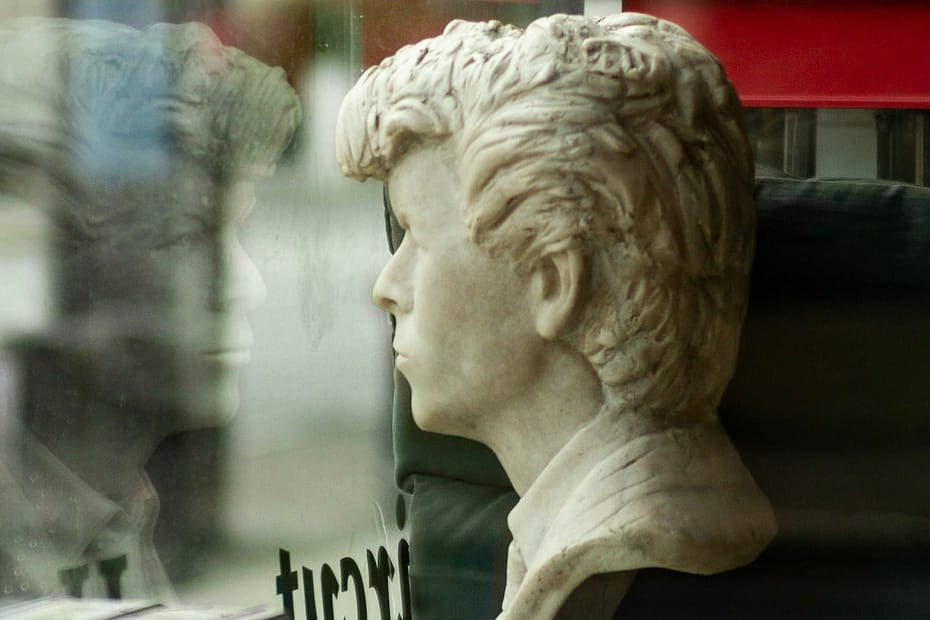When the people steering our companies, countries, and culture start acting like they’ll never die, the rest of us end up holding the bill. From Silicon Valley boardrooms to gilded presidential palaces, today’s air feels thick with ego, short‑term grabs for relevance and a frantic scramble to leave a name chiseled somewhere—anywhere—before the curtain falls. I believe those excesses are just the modern costume for an ancient panic: the terror of death. Ernest Becker argued that humans cope with mortality by launching “heroic projects” that scream I WAS HERE. But when money and clout become the measure of worth, heroism curdles into megalomania. Today, we will trace how the denial of death corrupts modern power and sketch a healthier blueprint for the legacies we’ll be proud to leave behind.
If you are a human with a pulse—heh—and old enough to drink, you’ve probably pondered for an uncomfortable stretch what lies beyond death. Isn’t it strange that life’s greatest mystery is what happens after it? Accepting we are going to die and that nothing can stop it is deeply unsettling. So we smother the fear with achievements, trophies, stock options, and names on buildings—as if applause could muffle the ticking clock.
Face the Clock
We first meet death when a childhood hamster vanishes, or a grandparent’s chair sits empty at Sunday lunch. A gentle lie—”Buddy went to live on a farm”—is meant to cushion reality, yet the truth seeps through: everything ends, and from that moment, the clock in the back of our minds starts ticking.
Ernest Becker’s Pulitzer‑winning Denial of Death argues that because we alone know we will die, we spend our lives suppressing that terror. Every act—good, evil, or banal—becomes a heroic struggle to transcend oblivion. That very impulse sits at the core of today’s megalomaniac leadership. Tech founders hunt “paradigm shifts,” presidents tinker with term limits, and influencers treat algorithms like stairways to Olympus—each desperate to matter beyond their pulse. And, of course, it doesn’t help that most of these people are in their twilight years.
“The idea of death, the fear of it, haunts the human animal like nothing else; it is the mainspring of human activity – designed largely to avoid the fatality of death, to overcome it by denying it in some way that is not apparent in the everyday world.” ― Ernest Becker, The Denial of Death.
Chase Life, Not Forever
Take tech millionaire Bryan Johnson, who reportedly spends about $2 million yearly on plasma swaps and supplement cocktails to “reverse” his biological age. He live-streams lab results as if they were sports stats, reframing basic human decay as a bug fix. The goal isn’t die well; it’s don’t die at all. When that mindset filters into corporate mission decks and public policy, ordinary lifespans—and ordinary virtues—start to look like failure. Insurance companies quietly wonder how to price a world where the ultra‑rich might live to 150, and everyone else still clocks out at 79.
Johnson is only the poster child. Google’s Calico, Jeff Bezos–backed Altos Labs, and a dozen cryogenic startups swallow billions in pursuit of actuarial magic. The pitch decks promise liberation from the Grim Reaper; the subtext is brutal: your life is a rounding error, mine is a moonshot.
Measure Worth Wisely
Now, an urgency to leave a legacy and change society is not inherently a bad thing. After all, we have made the progress we had as a species thanks to the mavericks and megalomaniacs of the past. However, the problem is that culturally, we have shifted to value the wrong things. Money, appearances, and fame have become the currency of the modern man and, thus, the bar with which we measure worth.
Want a bellwether of warped legacy? Follow the money. In 2023, the median compensation for an S&P‑500 CEO jumped 12.6 percent to $16.3 million—even as the average worker took home roughly $65k for the entire year (equilar.com). The chasm isn’t just financial. It’s philosophical. Astronomical pay packages broadcast that worth = how loudly your bank balance outlives you.
Political leaders drink from the same fountain. Populist strongmen meddle with term limits, clamp down on dissent, and plaster their faces on monuments as if the calendar stops with them. Their speeches rarely invoke stewardship or inter‑generational responsibility; they’re framed as personal destiny quests—national MySpace pages that must go viral.
As vanity metrics replace virtue metrics, we start celebrating the appearance of strength above the practice of restraint. We’ve corrupted masculinity into bombast, intellectualism into a parlor trick for scoring retweets, and economics into speculation over value creation. In that atmosphere, legacy becomes a high‑score table instead of a moral hand‑off.
The Culture Ripple Effect
Values flow downhill. When the high priests of commerce, politics, and entertainment equate immortality with numeric dominance—followers, views, market cap—ordinary mortals copy the algorithm. The result is a generation conditioned to treat kindness as a weakness and patience as a productivity bug.
Worse, every click we give the spectacle confirms the business model. Attention—our most finite currency—subsidizes the next outrageous quote, the next 🚀 emoji earnings call, the next fountain‑of‑youth startup pitching we’ll all live to 200 if we just buy the premium tier.
Rewrite the Heroic Script
Yet legacy doesn’t have to be a vanity mirror. The physics of influence work just as well for humility as for hubris.
- Character over currency. Patagonia’s founder, Yvon Chouinard, gave the company away to protect the planet. His obituary will headline purpose, not “net‑worth milestone.”
- Stewardship over stardom. The late Jacinda Ardern’s COVID leadership in New Zealand modeled transparency, compassion, and attention to the vulnerable—tweet counts be damned.
- Community over conquest. The African philosophy of ubuntu—”I am because we are”—frames legacy as communal well‑being, not personal eternity.
These examples remind us that impact compound interests fastest through people, not portfolios.
A Caveat
Now, fair warning: Even though I have been praising Becker’s take on the pathologies that define our current existential crisis, this take isn’t gospel. The philosopher Walter Kaufmann once joked that if you blame every human achievement on terror of the Grim Reaper, you can explain anything—and, therefore, explain nothing. Modern psychologists have built Terror Management Theory to test Becker in the lab, and the results are… let’s say, “mixed” at best. Other schools —think Self-Determination Theory— argue we do big things because growth and connection simply feel good, not because we’re sneaking around Death’s shadow. So, as compelling as Becker is, keep a pinch of salt handy.
Your Legacy Toolkit (Three Habits, Zero Plasma Swaps)
- Mentor weekly, formally or informally. Skills fade; the humans you invest in can pass wisdom forward long after your LinkedIn profile goes dark.
- Put skin in the game. Channel 1 percent of income (or one Saturday a month) into a cause that will outlast you—climate resilience, literacy, elder care. Money is just stored intention; spend it like you mean it.
- Practice memento mori. A two‑minute reflection each morning—”If today were my last, would this matter?”—pop‑quizzes your priorities better than any KPI dashboard.
“You could leave life right now. Let that determine what you do and say and think.” ― Marcus Aurelius, Meditations 2.11
Hold Ambition to Account
Look, not every moonshot is some neurotic dodge of the afterlife. Developmental heavyweight Erik Erikson called late-life generativity —the urge to mentor, plant trees, and endow scholarships— a positive drive to lift the next generation. In that light, building a company that outlives you can be an act of care, not vanity. The litmus test is motive: if your legacy project feeds community and possibility, rock on; if it’s a 300-foot bronze statue of yourself, maybe book that therapy session.
Leave Living Legacies
I firmly believe that the ultimate goal of any person should be to become part of the zeitgeist that defines the most adopted human virtues that elevate us. This means we need to start making corrections to our values. We can no longer celebrate excess and thoughtless displays of strength. We need to amplify the achievements of those who show restraint and dedication. We must shift our perspective on beauty and what is enough. Most importantly, we must regain the virtues that made us civilized collective beings capable of collaborating and understanding each other—patience, understanding, and openness.
We cannot out‑supplement, out‑invest, or out‑tweet the Reaper. What we can do is decide what echoes when we’re gone. Denying death turns legacy into a frantic ego project; embracing it turns legacy into an act of generous design. So, let’s trade pyramid schemes of self‑importance for gardens of shared growth. Plant something that will bloom when you’re not around to see it—and sleep well, knowing immortality was never the point.

My hope is that we aspire to live eternally in the future generations who learn from us how to live a good, meaningful, and fulfilling life. Those whose lives we touched and to whom we pass down the teachings, victories, and mistakes of a life worth living.
When leaders finally admit they’re mortal, the rest of us get to live better moments, right here, right now.
Until next time.
I see you.
Cover photo by the blowup on Unsplash





